A Total War Saga: Troy reinvents its battles for the Bronze Age
The mythical spin-off brings with it big changes to the real-time brawls.
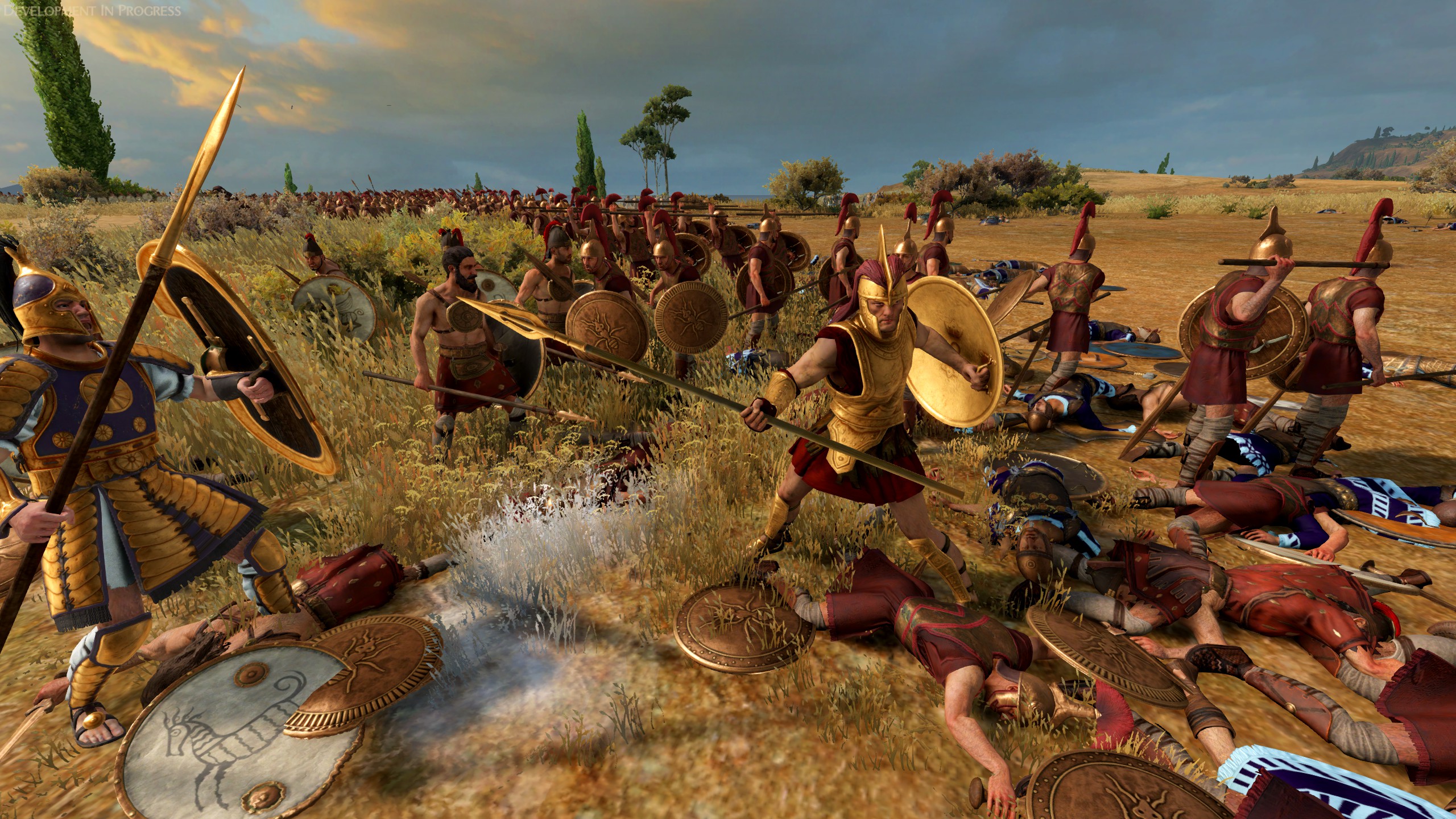
Two armies, all ordered into neat little rows, hold opposing ends of a battlefield. The sun's out—it's a nice day for a fight—and in the background sits a city, nestled behind stalwart walls. It's A Total War Saga: Troy's deployment phase, the calm before the storm, but any second now a man dressed up as a bull is going to smash into my troops.
Luckily I've got Achilles on my team, all decked out in gold armour and hopefully sporting some reinforced sandals. Troy's legendary leaders are extremely gifted in combat. They can shrug off being attacked by multiple units, have an array of special abilities and get to show off in duels. The echo of the fantastical stuff established in Warhammer and carried on through Three Kingdom's Romance mode continues here, but it's a lot more grounded.
"We felt that the Romance mode heroes were a little bit over the top, and we would like to have our own take," game director Maya Georgieva tells me. "Even in mechanics, such as the challenges, the hero duels, we have our own takes on those, too; they're not exactly the same as they play in Three Kingdoms. And we feel that our setting is even a little bit less fantastical than the Romance setting, in that regard at least."
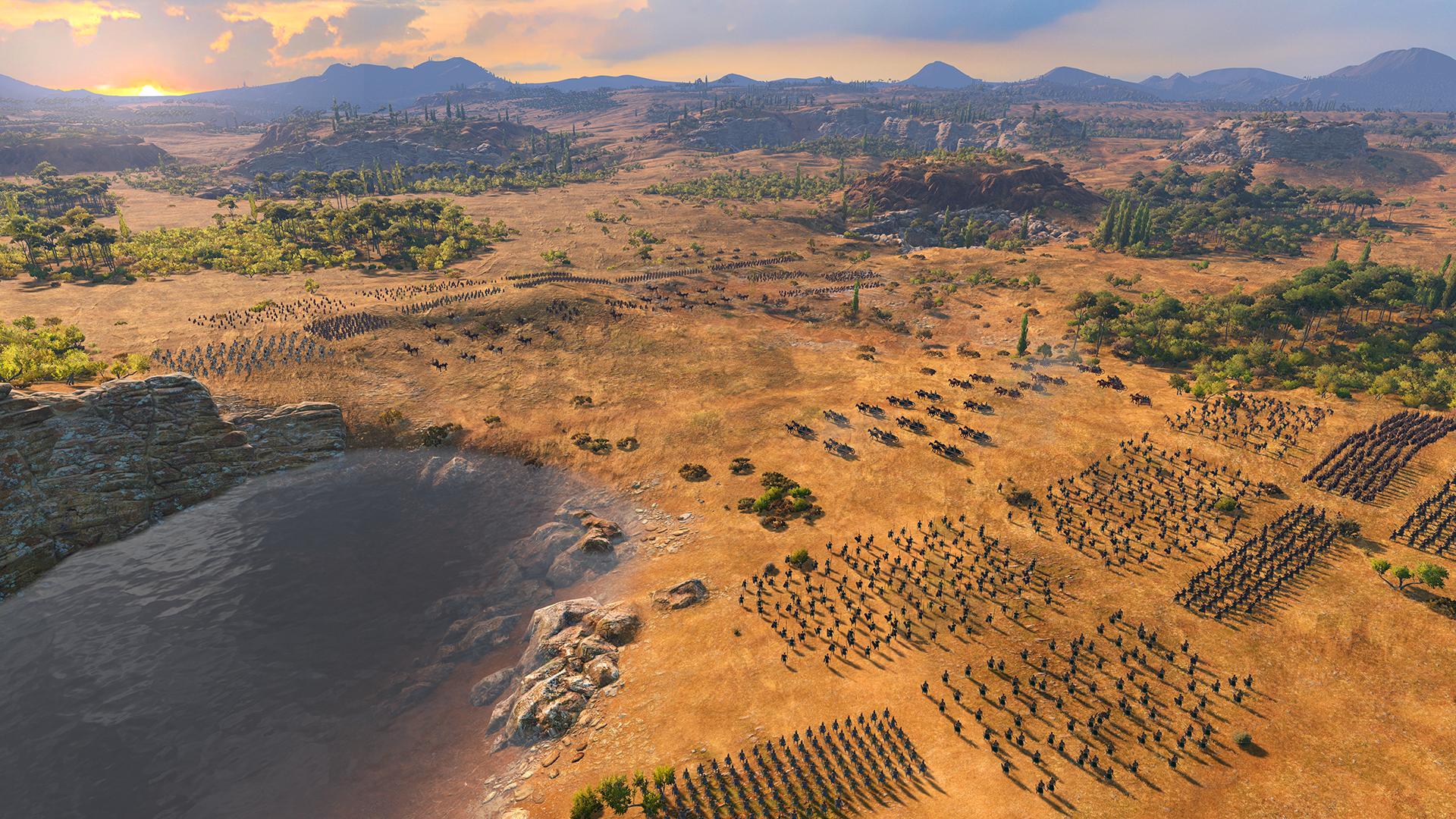
While these heroic leaders aren't quite as supernaturally gifted as their cousins in other Total Wars, they still sit at the heart of Troy. One of the trickiest tasks the team set itself was finding a way to present all the Hellenic and Trojan factions as distinct, and it settled on the heroes. Every faction uses its primary hero as a foundation, so Achilles' Achaean armies are full of fast, aggressive units that have a penchant for charging. Hector's Trojan troops, on the other hand, are heavily armoured and focused on defence, just like the prince.
This grounding of myth is most apparent in Troy's treatment of powerful units like centaurs and special heroes like the Minotaur and Cyclops. The first two were present in the demo, and all of them are entirely human. The centaurs are just people who are very good at riding horses and also happen to wear hats with horns. The Minotaur, meanwhile, is bandit leader who wears a bull mask and is tough enough to smash down gates.
"Our design for the mythic creatures was to make sure that each of them gives different gameplay opportunities for the players," explains senior gameplay designer Milcho Vasilev. "Like in an infantry-based battle, once you get access to the centaurs, which are a type of cavalry unit, you suddenly get that advantage of being able to very easily outflank your opponent, harass archers or chase off routing units."
Troy is all about infantry. You can still field the occasional chariot, but the vast majority of your army will be fighting on foot with swords and spears. The mythic units fill the gaps, then, letting you field cavalry and chase down enemies, or smash down city walls without a siege engine. Every faction can get access to them by controlling specific territory, but they'll be limited in number.
The biggest gaming news, reviews and hardware deals
Keep up to date with the most important stories and the best deals, as picked by the PC Gamer team.
Your foot soldiers also have a lot more functionality, and the differences between infantry units are greater. Units are split into distinct weight classes that determine their speed—light units can be up to twice as fast as heavy ones—and stamina, and within those classes are more specialised units, like ones particularly talented at charging, and even a few that can switch weapons. Once you no longer need to brace for that first attack, for instance, you might want some of your spearmen to ditch the shields and go two-handed.
Despite the lack of horses, battles also feel surprisingly brisk, with light units able to chase down fleeing enemies and others able to wipe out foes quickly with nasty flanking attacks. "We've done a lot of small improvements on all that," says Vasilev, "trying to keep the overall pace at the same spot of the overall game, but slightly increasing the pacing of the infantry against infantry combat so that battles don't take forever to resolve." Some of these changes, then, make Troy feel like more of a Total War game, not less.
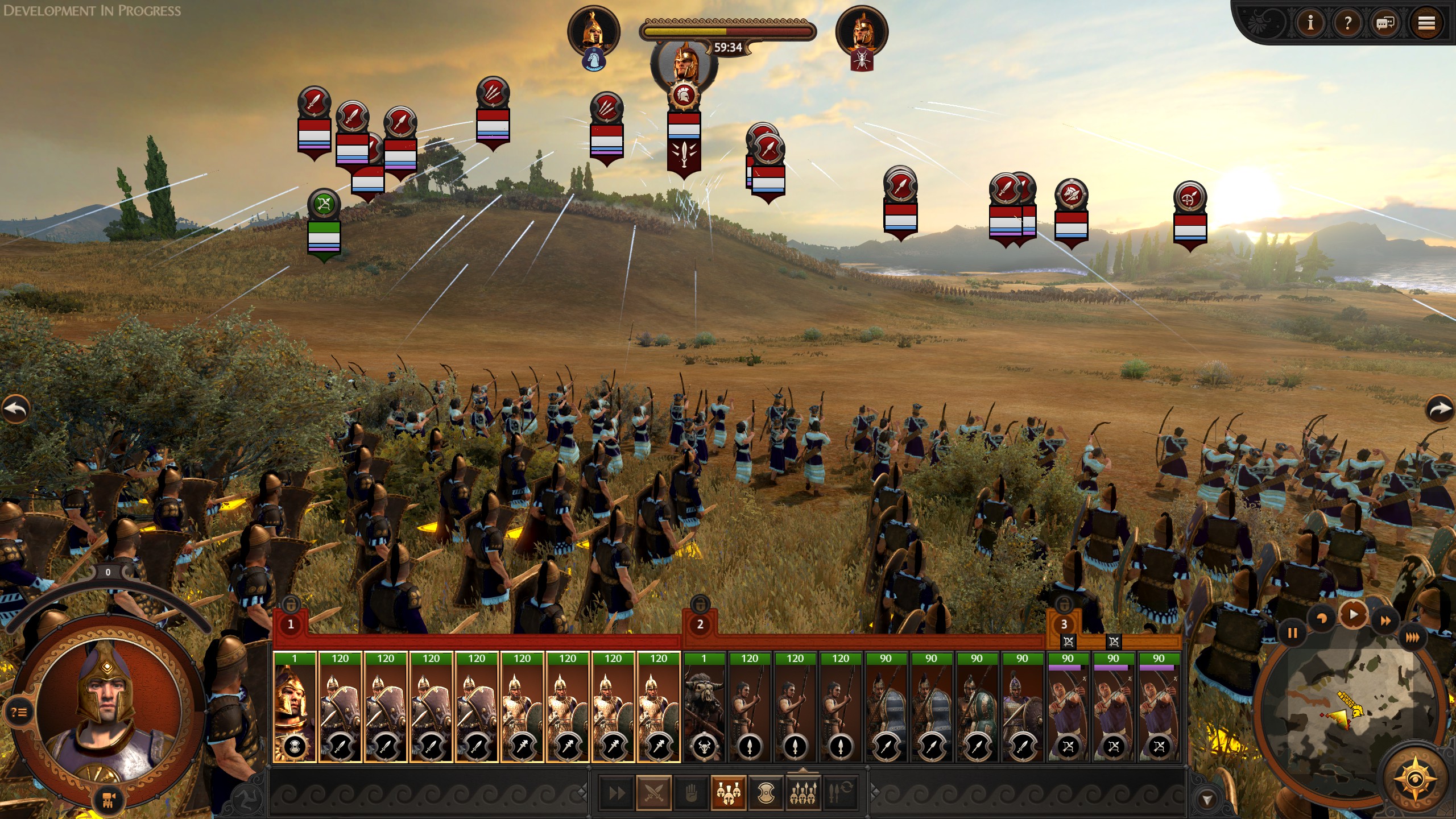
Confession: I did forget about the weapon switching a lot. When my units are fighting, I like to leave them to it unless they get into trouble or I need them somewhere else. It's just a button, but it's an extra bit of micromanagement in a game that already has a fair amount. There's an argument for only giving abilities to the rarer hero units and leaving the regular ones free of complications, but in this case it's just one ability that's shared by several units, and the boost in utility seems worth the price of remembering to press a button.
In general, though, Troy does feel more micromanagement-intensive. Even units without active abilities can have quirks that require lots of hands-on attention. There's a lightly armoured two-handed spearman unit that I grew quite fond of because of the damage it can do when charging, but in regular combat it absolutely sucks. You're meant to yank them out of the fray and have them hunting down soft targets, but that can be a challenge when you've got like 19 other units to worry about. They died a lot.
There's new terrain to worry about, too. Mud, sand and tall grass presents new opportunities for catching enemies with their pants down as you rush at them when they're stuck or ambush them without the assistance of a forest. The one map I got to take for a spin featured a strip of mud that I frequently tried to tempt enemies to wade into, but it took a bit of work. These obstacles aren't just plonked down in an obvious place that screams "Have your big fight here!"
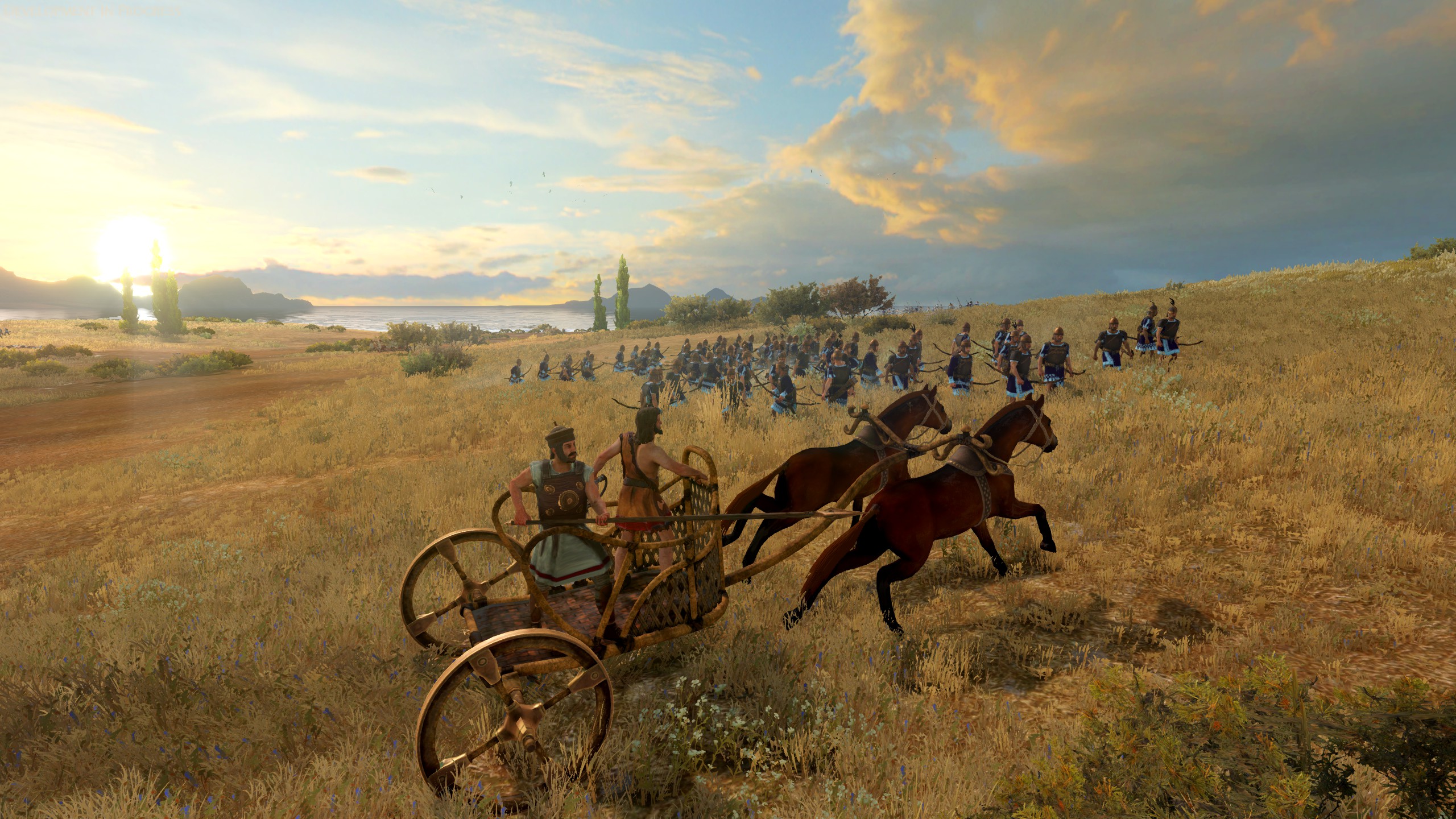
"The general direction has always been to put them in natural places where they feel natural to the terrain rather than arcadey, like every battle map has to have at least one or two of them," says Georgieva.
So, if you're fighting a river crossing battle, you can expect a fair amount of mud, while beaches or the more arid parts of Asia Minor will presumably have a bit more sand. Different factions will handle these environmental obstacles better, too. Achilles, for instance, has lots of units who can just rush through the mud, while Hector's armoured troops will take a lot longer to get through. Odysseus, star of The Odyssey, wasn't playable in this build, but it sounds like he'll be taking advantage of the terrain the most. Hit-and-run tactics are his deal, so you'll need to make a lot of adjustments and keep his units out of long brawls. If it's micromanagement you're looking for, this is the faction for you.
"Part of the challenge that we had when we started this project was how do we offset the limitation of the setting, with the period not having a lot of units," says Georgieva. "So we wanted to use all the toolsets that we had and also invent new mechanics and tactics. I think that we've definitely increased the micromanagement, but what we realised—probably mid-production—is that that ambition that we have needs to be complemented with much more effort into tutorials."
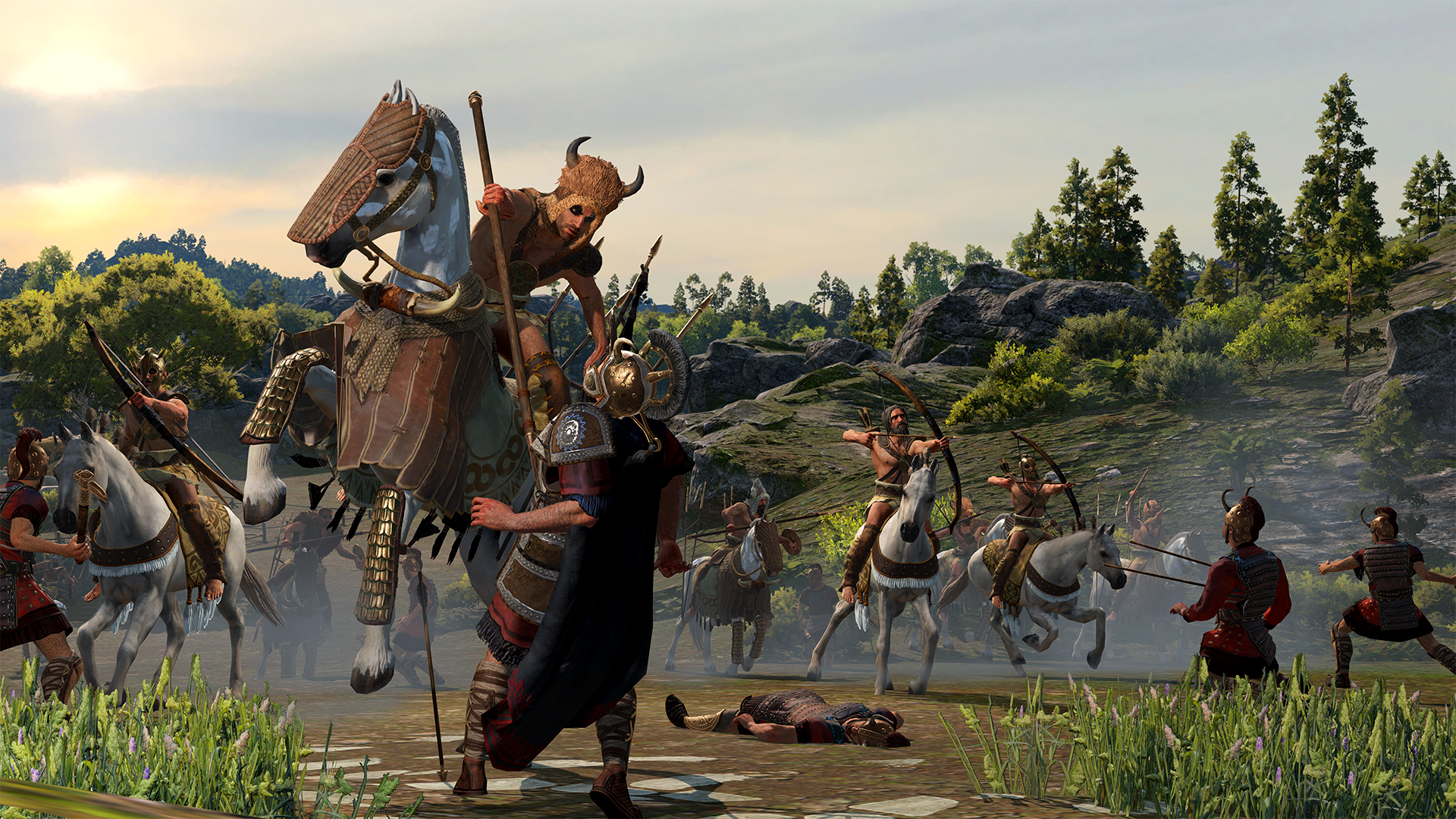
Along with guidance and tutorials, new players can dip their toes into the conflict with "scripted, elaborate tutorial battles," which will be accessible throughout the game. You can get a refresher whenever you want. Outside of the game, players will also be able to get some hints and tips from Let's Plays and other video resources Creative Assembly Sofia plans to release.
It took me a bit of time to get used to the new rhythm and quirks. In Total War's brawls, it sometimes feels like you're just managing the battle, but with Troy's it felt like I was in the thick of it, with more demands put on my attention, but also more options in my toolbox. The limitations of the Bronze Age setting have spawned some clever solutions, with the developers appearing to have enhanced a lot more than they've subtracted. Though not as flashy as Warhammer's addition of heroes, dragons and magic, Troy's changes seem just as significant.

Fraser is the UK online editor and has actually met The Internet in person. With over a decade of experience, he's been around the block a few times, serving as a freelancer, news editor and prolific reviewer. Strategy games have been a 30-year-long obsession, from tiny RTSs to sprawling political sims, and he never turns down the chance to rave about Total War or Crusader Kings. He's also been known to set up shop in the latest MMO and likes to wind down with an endlessly deep, systemic RPG. These days, when he's not editing, he can usually be found writing features that are 1,000 words too long or talking about his dog.

